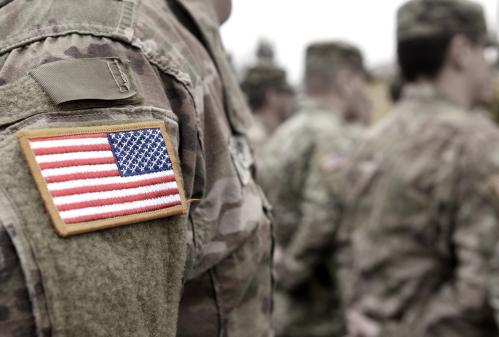President Barack Obama’s surprise visit to Afghanistan Sunday comes almost exactly one year after his strategic review of American policy toward Afghanistan and Pakistan was completed last March. In announcing the policy that flowed from that review, Obama said his goal in what is now our longest war is to disrupt, dismantle and defeat al Qaeda’s bases there and prevent it from using them to threaten Americans at home and abroad. A year later, it is a good time to look at how we are doing.
Today al Qaeda is under unprecedented pressure in its Pakistani lair. CIA drone attacks are killing key leaders and disrupting operations. The number of such attacks doubled last year over 2008, and the pace this year is even faster. One example of the pressure—al Qaeda’s No. 2, Ayman Zawahiri, who usually comments almost weekly on world events, has not been heard from this year except for one abbreviated message. He will probably reappear sooner or later, but for now he seems to be focused on his security.
Al Qaeda is fighting back hard. On December 30, 2009, it attacked the CIA’s forward operating base in Afghanistan, killing seven, the second-worst day in the agency’s history. It trained suicide bombers in Pakistan and Yemen to attack New York City, Detroit, and Copenhagen last year. Fortunately all three plots failed or were foiled. Osama bin Laden promised more last week until America abandons its support for Israel.
Pakistan and the U.S. just concluded a high-level strategic dialogue in Washington last week aimed at trying to improve cooperation and coordination between two deeply mistrustful partners. In striking contrast to a year ago, when Pakistani generals denied any Afghan Taliban leaders were in their country (as they were actually meeting to plot in Quetta against Obama’s plans), this year Pakistan has captured the Taliban’s second in command and a half dozen other senior leaders with CIA help. Pakistan’s forthright Foreign Minister Shah Mahmood Querishi told Charlie Rose that the Pakistani intelligence service, ISI, is now “being targeted by Taliban” and “our side is no longer a friend of them.” Pakistan still harbors other dangerous terrorist groups, like Laskhkar e Tayyiba, which threaten India and America, but there is an important change in Islamabad, which should not be minimized. The combination of the war inside Pakistan and new American policies are having a welcome effect.
The struggle in Afghanistan itself is only just beginning. The additional American troops and civilian experts Obama has sent are still closing to the battlefield. The new American and NATO strategy is getting its first test in Helmand province, where a major American-British-Danish offensive is under way. A much bigger test is coming soon in Kandahar province next door, the home of the Taliban and bin Laden’s base during the 9/11 attacks. It is premature to judge the outcome; we probably won’t really be able to judge until a year from now. Badly flawed elections last year did not help our effort, but polls show that most Afghans have welcomed the new Obama approach, reject the Taliban, support the Karzai government and want NATO to stay.
Our NATO allies seem determined to stay despite heavy casualties and war weariness. The Dutch are leaving this summer after doing an outstanding job for several years because their government could not agree on whether to stay and fell apart. But the other allies have increased their contributions in the last year. Obama and French President Sarkozy will doubtless underscore the importance of the mission when they meet in the White House on Tuesday. The war in the Hindu Kush has become the test of NATO’s relevance in the 21st century.
Indeed, the stakes are huge in this war. If any one of those al Qaeda plots last year had succeeded in New York, Detroit, or Copenhagen, Obama’s presidency and our nation’s history would have been transformed. Our foes’ ambitions are enormous and include acquiring weapons of mass destruction in Pakistan, provoking war between India and Pakistan, and dealing NATO and America a defeat in Afghanistan as devastating as the defeat the Soviet Union suffered there in the 1980s. Obama’s visit is a reminder of how important—and difficult—this mission is.
The Brookings Institution is committed to quality, independence, and impact.
We are supported by a diverse array of funders. In line with our values and policies, each Brookings publication represents the sole views of its author(s).



Commentary
Op-edWho’s Winning This War?
March 28, 2010